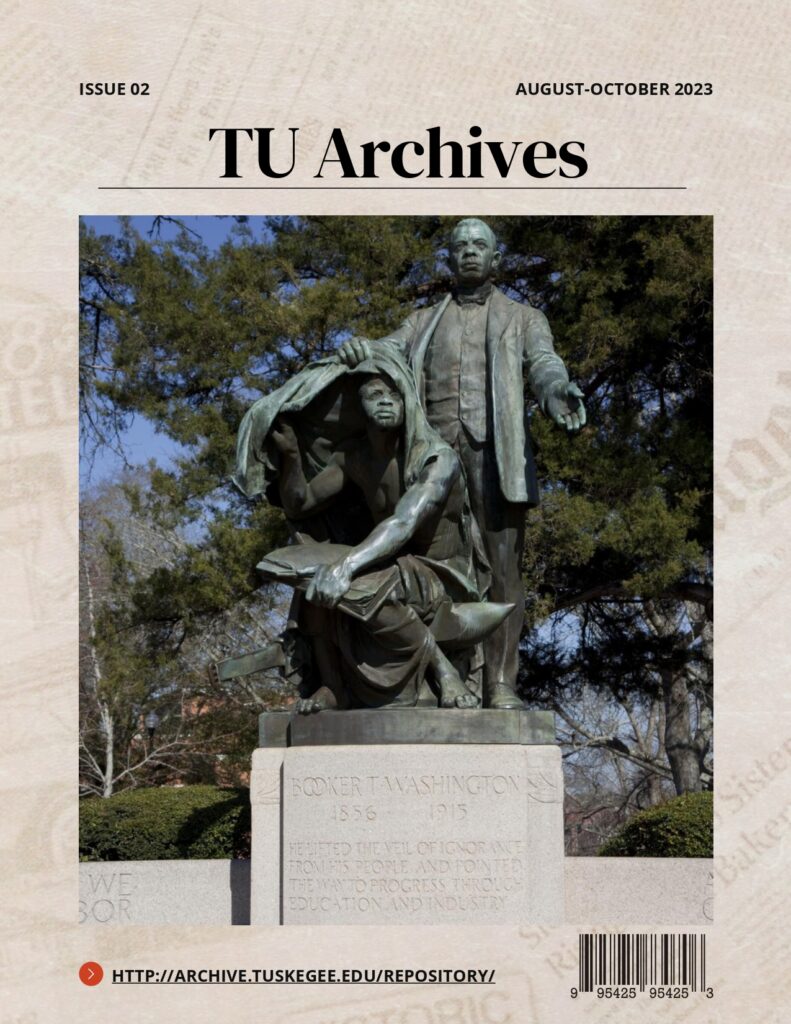
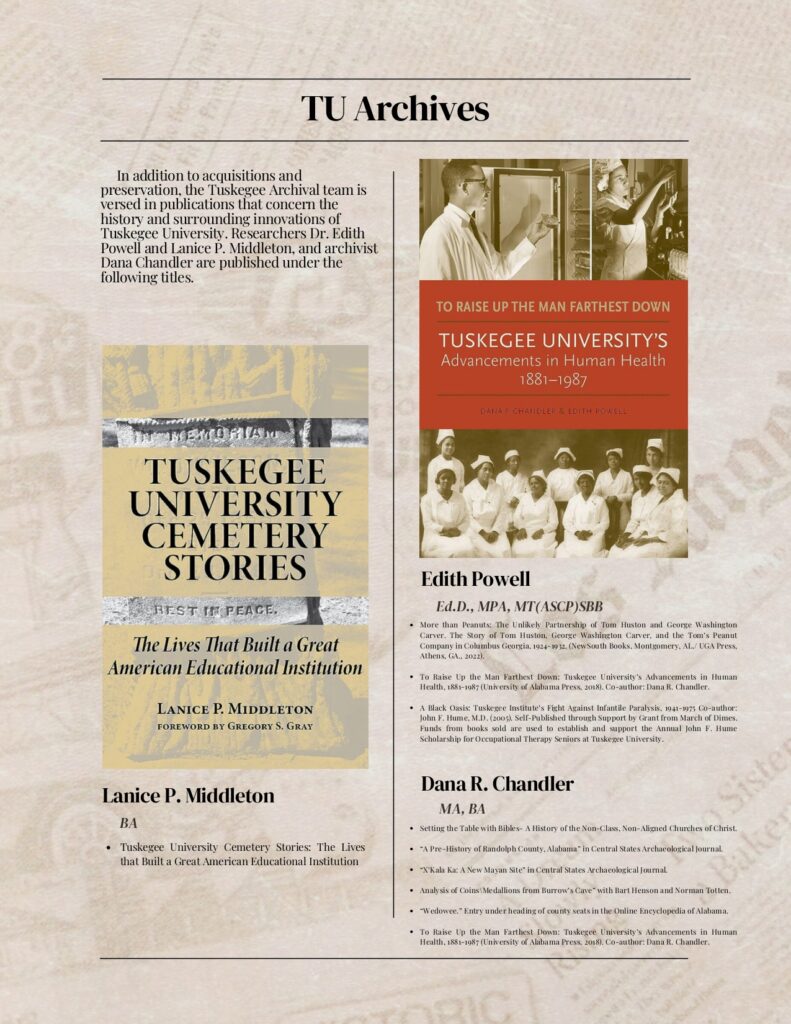


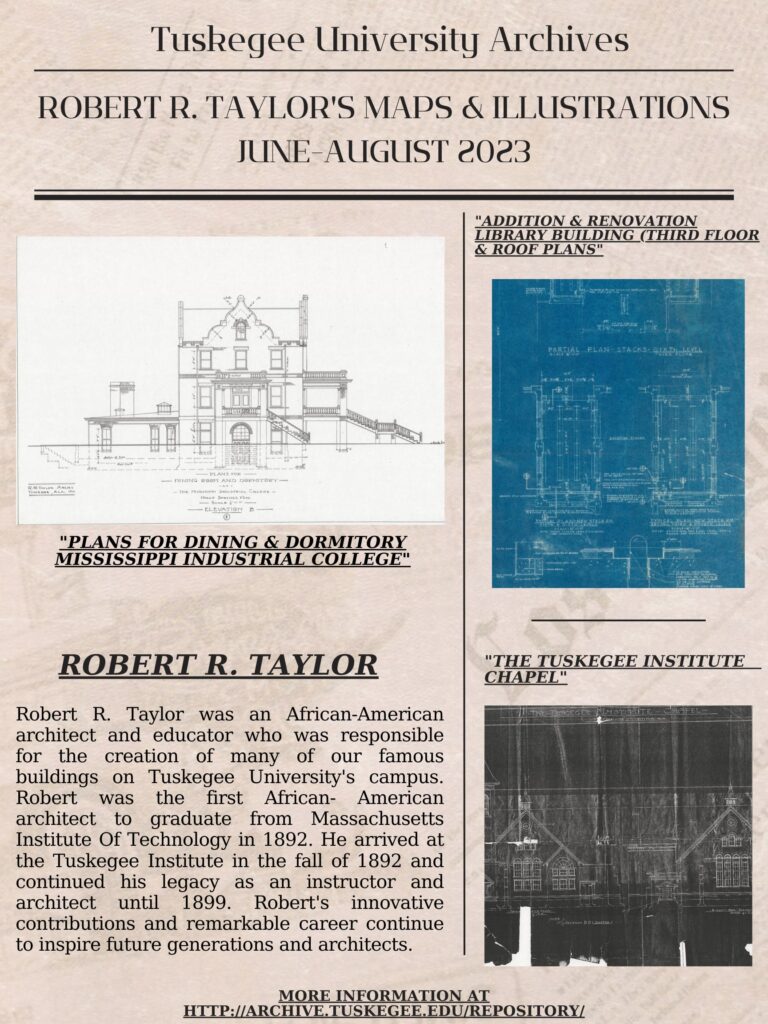
“Thanks for joining our team, Marvin Bryd & Catiana Foster! We can’t wait to see what you’ll make happen.”

Marvin Byrd earned his Bachelor of Arts in History from Albany State University (ASU), with concentrations in American, European, and Non-Western History. He received his Master of Applied Social Sciences (MASS) with concentrations in African & African American History from Florida A&M University (FAMU). After graduation, he assisted in research for the Montague Collection in Tallahassee, Florida. The Montague Collection’s aim is to tell the black experience in America. Since June 2022, Marvin has served as the Digital Humanities Program Manager at Tuskegee University.
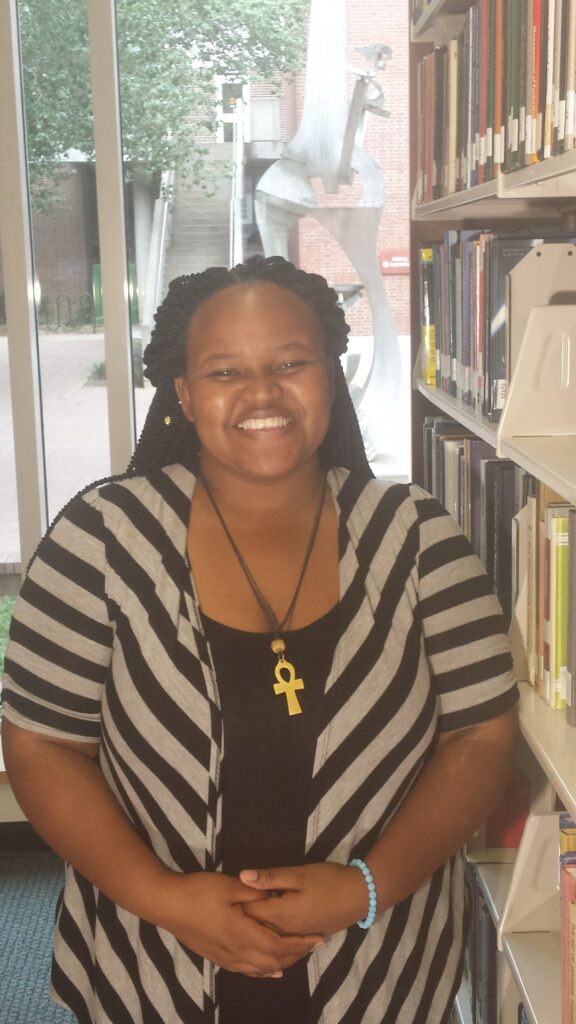
Catiana Foster earned her Bachelor of Arts in History from Albany State University (ASU), with concentrations in African American studies. She received her Master of Applied Social Sciences (MASS) with concentrations in African & African American History from Florida A&M University (FAMU). After graduation, she worked with the Knott House Museum as a Museum Educator, then Program Coordinator for the John G. Riley Center & Museum. She assisted with multiple projects such as the creation of the Frenchtown Historic markers and the Bond Community project. As of March 2023, Catiana has served as the Post-Doctoral Fellow in Digital Archives in the Library Services/ Archival Department at Tuskegee University.
The Smithsonian’s National Museum of African American History and Culture (NMAAHC) established a consortium with five historically black colleges and universities (HBCUs) to enhance their university museums and archives. This will enable the institutions to preserve and promote the history and culture of HBCUs, which have played a significant role in the education and advancement of African Americans and their essential role in American culture and history. The consortium includes Clark Atlanta University, Florida A&M University, Jackson State University, Texas Southern University, and Tuskegee University. This partnership will provide these HBCUs access to the Smithsonian’s expertise, resources, and collections, helping them enhance their collections and programs. It will also create opportunities for collaboration and exchange among the institutions involved.
The Smithsonian Institution has a long history of working with HBCUs, and this latest initiative builds on that legacy. By partnering with these institutions, the Smithsonian can help to strengthen the capacity of university museums and archives and ensure that the stories of African American history and culture are preserved for future generations. Overall, this positive development highlights the importance of preserving and promoting the history and culture of HBCUs. It is also a reminder of institutions like the Smithsonian can play a valuable role in supporting education, research, and cultural heritage.
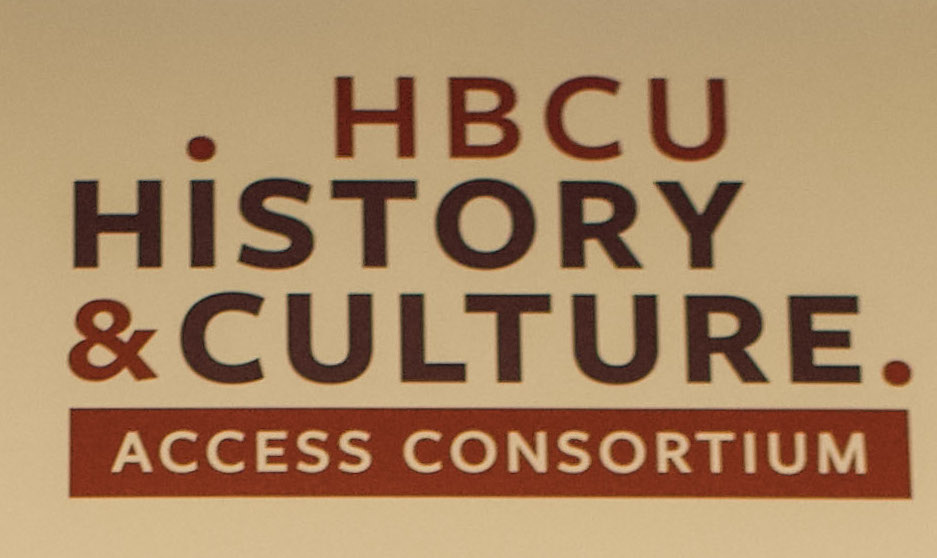
The archives has just received notification of a very important donation. Thanks to the donation from Ms. Natalie Silverman, whose great-grandfather Ira Greene was the producer of a 1940 biopic of George Washington Carver (imdb link here). The collection includes a few pieces of memorabilia from the film, including the first reel of the film itself, and the original script. Much of the content of the film is set and filmed at Tuskegee. This is a link to the digital copy: GEORGE WASHINGTON CARVER MOVIE.m4v
The archives have hired Marvin Byrd as the new Digitial Humanities Project Manager effective June 1st, 2022.
As a part of the CLIR grant, a partnership between NAAMHC and five HBCUs, Tuskegee University Archives will be digitizing one hundred reel-to-reel tapes within a two-year period.
All yearbooks between the years 1914-2021 have been digitized and uploaded to our website for viewing.
The Journal of The Tuskegee University Women’s Club has been digitized and has been uploaded under the “Other Items” section of the website.
The Archives have digitized the Tuskegee Airmen Experience Book which consists of photographs and biographies of the Airmen dating back to 1944. This important document can be found under the Tuskegee Airmen portion of this website.
The G.L. Washington Book “History of Military and Civilian Pilot Training of Negroes at Tuskegee 1939-1945” has been digitized and had been uploaded to the website under the Tuskegee Airmen section.
All of the Monroe.N.Work Negro Yearbooks have been scanned and digitized for public viewing.
The University Archives includes material documenting the history and growth of Tuskegee University. Books (including faculty publications), manuscripts, Tuskegee University periodicals and newspapers, ephemera, photographic images, disc and tape recordings, and other archival items are available for research under supervised conditions.





Why go to the Library of Congress to do research on Booker T. Washington? We have the complete set of the same microfilm that they have. We also have over 300 boxes of materials specific to his work, materials regarding the National Negro Business League and the National Negro Health Week. View the Guide to the Papers of Booker T. Washington (Tuskegee), the Papers of Booker T. Washington finding aid (Library of Congress), Booker T. Washington biographical sketch, and our digitized materials about Booker T. Washington.
Providing long‐term access to scholarly resources is a core mission of the Tuskegee University Archives. For example, Tuskegee University recognizes educational extension and outreach as embracing ―a wide spectrum of liberal arts, scientific, and technical and professional programs. In accordance with that mission, we commit to providing long‐term access to our collections and website. This section includes information about the archives, its employees and history.
A timeline of the history of Tuskegee University. This PDF was compiled by the archives staff for use by educators and others interested in the history of the university. Again, this document is not exhaustive. If you are looking for something that is not listed, please contact us.
Finding aids are tools that help a user find information in a specific record group, collection, or series of archival materials. Examples of finding aids include published and unpublished inventories, container and folder lists, card catalogs, calendars, indexes, registers, and institutional guides. Tuskegee University Archives works diligently to supply finding aids for its collections. This listing is not exhaustive, check here regularly for updated materials.
Tuskegee University Archives has over 250,000 images, negatives, slides and panoramic photographs. Many of these items were created by the Tuskegee Institute Photographic Division photographers including: Arthur P. Bedou, Cornelius M. Battey and Prentiss H. Polk (which are considered to be three of the greatest African American photographers). This section includes images and information about our rich photographic legacy.
Our audio collection includes approximately six hundred reel to reel audio tapes and over one thousand cassette tapes containing various lectures and speeches. These materials include (but are not limited to) reel to reel audio tapes with speeches from Civil Rights icons such as Stokely Carmichael, Shirley Chisholm, Malcolm X, Martin Luther King, Jesse Jackson, John Lewis and Andrew Young.
Tuskegee University Archives does not have the capability to digitize our video tapes. We do have some that have been digitized, but you must come to the archives in order to see them. If you are looking for something that is not listed, please contact us.
Tuskegee University now houses the nation’s most complete record of lynchings occurring in the U.S. during an 86-year period spanning 1882 to 1968. During this time, 4,743 people were lynched — including 3,446 African Americans and 1,297 whites. Note: Before you begin your work here at the archives, please see Ramzi Rami’s important work on the subject at: https://plaintalkhistory.com/monroeandflorencework/explore
The Tuskegee Messenger, was “a semi-monthly journal of Negro progress and inter-racial cooperation” that began publication in 1924 as an instrument to proclaim the work of Tuskegee Institute throughout the nation. A very successful paper the paper was highlighted by editorials from some of the most prominent African-Americans in the United States including Robert R. Moton and George Washington Carver.
Digitized photographs from P. H. Polk, a photographer known for his powerful images that capture life, Tuskegee University, and the Civil Rights Movement. Donated by the Polk family 2017. These images represent just a portion of the 3,800 images on file. Includes a finding aid and PowerPoint.
From a modest beginning in a one room shanty located near Butler’s Chapel AME Zion Church, Tuskegee University rose to national prominence under the leadership of its first president, Booker T. Washington (1856-1915). Washington was a highly skilled organizer and fund-raiser who counseled U.S. presidents and was a strong advocate of African American farmers and businesses. He worked tirelessly in developing methods to aid African Americans to succeed by establishing a variety of on-campus vocational classes including carpentry, brick-making, sewing, millinery, animal husbandry and gardening. Students were also required to complete coursework toward general diplomas which included mathematics, English and history. Student enrollment was not limited to rural Macon County and the South, but was international in composition. This section contains materials specific to Booker T. Washington.
George Washington Carver was an agricultural scientist and inventor who developed hundreds of products using peanuts, sweet potatoes and soybeans. Born an African American slave a year before slavery was outlawed, Carver left home at a young age to pursue education and would eventually earn a master’s degree in agricultural science from Iowa State University. In 1896, he came to teach and conduct research at Tuskegee University until his death in 1943. The archives has the most complete collection of Carver material, including all of the Carver Bulletins. A good starting point is to see this video compiled by Iowa Public Television: https://www.youtube.com/watch?v=_3CVmluYFtI
The Tuskegee Airmen were the first black military aviators in the U.S. Army Air Corps (AAC), a precursor of the U.S. Air Force. Trained at the Tuskegee Army Air Field in Alabama, they flew more than 15,000 individual sorties in Europe and North Africa during World War II. Their impressive performance earned them more than 150 Distinguished Flying Crosses, and helped encourage the eventual integration of the U.S. armed forces. Although the majority of information concerning this group can be found at the U.S. Air Force Archives (Montgomery) and the Airmen Museum (Tuskegee), we do have many items that are beneficial for researchers.
If you need to contact someone about a specific airman, please contact The Air Force Historical Research Agency at:
AFHRA
600 Chennault Circle
Maxwell AFB, AL
36112-6424
(334) 953-5697
(334) 953-5342
Tuskegee University Archives is committed to helping education professionals (k-12) by providing a variety of resources that can be used in the classroom. This section has reading lists, bibliographies and PowerPoints that will assist in providing important information concerning the African American experience.
Audio recordings and digitized materials from the Tuskegee Civic Association, a major civil rights group active in Tuskegee and Macon County from 1941 to 1979. The collection focuses on 1956-1959 and includes recordings of mass meetings and major speeches by civil rights pioneers and community activists including K.L. Buford, C.G. Gomillion, Fred Shuttlesworth, Ralph David Abernathy, Martin Luther King, and Jackie Robinson.
The Tuskegee Golden Tigers represent Tuskegee in intercollegiate athletics. They are a member of the National College Association of Athletics (NCAA) Division II and compete within the Southern Intercollegiate Athletic Conference (SIAC). The university has a total of 10 varsity sports teams, five men’s teams called the “Golden Tigers”, and five women’s teams called the “Tigerettes”. The Tuskegee University football team has won 29 SIAC championships (the most in SIAC history). As of 2013 the Golden Tigers continue to be the most successful HBCU with 652 wins. This section has a brief history of sports at Tuskegee and some important images.
The historical buildings at Tuskegee are considered to be those constructed from the time of the school’s inception in 1881 until the death of its first president, Booker T. Washington, in 1915, as well as buildings associated with George Washington Carver, who died in 1943. Not counting The Oaks, which can be visited on a tour given by the National Park Service, there are twenty historical sites on the campus, including eighteen buildings, a cemetery, and the Booker T. Washington Monument. While old, most of the buildings are still being used—dorms, classrooms, offices—so they are not open to tourists. This site provides further information regarding the buildings on Tuskegee’s beautiful campus.
The Farmers Conference at Tuskegee University is often cited as the oldest event of its type in the nation. The first Farmers Conference, originally called the “Peoples Conference” was hosted on this historic campus on February 23, 1892. This conference exists today as a two-day educational forum that features tours, panel discussions, interactive demonstrations and concurrent workshops.
Our obituary files are extensive, although far from complete. This listing will prove helpful if you are looking for information concerning anyone affiliated with Tuskegee University. If you are working on genealogical research, begin here.
Jessie Parkhurst Guzman (1898 -1996) was born in Savannah, Georgia, educated at Howard University (BA, 1919) and Columbia University (MA, 1924), and worked at Tuskegee University for over forty years. During Guzman’s time at Tuskegee University, she served as director of the Department of Research and Records (now called the archives) and Dean of Women (1938-1944). In 1950, she was named Tuskegee’s Woman of the Year, and in 1954, she sought public office with the Macon County Board of Education. This was the first attempt to run for office by a black citizen since Reconstruction. She was also the first black female to seek office in the state of Alabama. She was an active organizer in the civil rights movement and served as assistant secretary of the Southern Conference Educational Fund. Her book, Crusade for Civic Democracy: The Story of the Tuskegee Civic Association, 1941-1970 (1983), provides an in-depth look at civil rights work in Tuskegee. Furthermore, she and Bess Bolden Walcott made a journey in the “footsteps of Carver” during the 1950s, without any male companions.
Bess Bolden Walcott (1886-1988) arrived in 1908 upon graduation from Oberlin College, having been recruited by Booker T. Washington to help him organize his library. During her long tenure at Tuskegee Institute (1908-1962), she served in many capacities, including librarian, teacher, writer, editor, administrator, and curator. In addition to her distinguished academic service to one of Alabama’s most historic institutions of higher learning, she served her state and nation in ways that merit recognition in the Alabama Women’s Hall of Fame. She helped establish a Red Cross chapter at Tuskegee Institute at a time when many doubted black Americans could significantly contribute to the nation’s defense. Yet, she became the nation’s first black female Acting Field Director for the American Red Cross, demonstrating exemplary leadership. In addition to her outstanding public service through the Red Cross, she also helped conserve Tuskegee University’s unique historic legacy. A close friend as well as a long-time colleague of George Washington Carver, she served as curator for the Carver Museum (1951-1962).
This section includes a variety of maps useful to the history of Tuskegee University and the surrounding area.
Negro Yearbooks: An Annual Encyclopedia of the Negro published at Tuskegee University from 1912-1952. No editions were published for 1920/21, 1923/24, 1927/28-1929/30. Due to the fragility of the 1916-1917 negro yearbook the Tuskegee University Archives is unable to scan and digitize this item. A great resource of facts and information.
This includes a listing of some of our oversized and large format items, maps, blueprints, panoramic photos, smaller file cabinet collections and library. Within the files are posters, photographs, journal from the Tuskegee University Women’s Club, advertisements, books, magazines, trophies, and miscellaneous.
Containing approximately fifty thousand books, pamphlets and journals, the two rooms are full of important books, pamphlets, etc. The Washington Collection and Rare Books rooms are located in the existing Tuskegee University Main library. Each contains materials specific to a certain aspect of research for Tuskegee University staff, students and researchers from around the world. Consider using this important resource when doing your research.